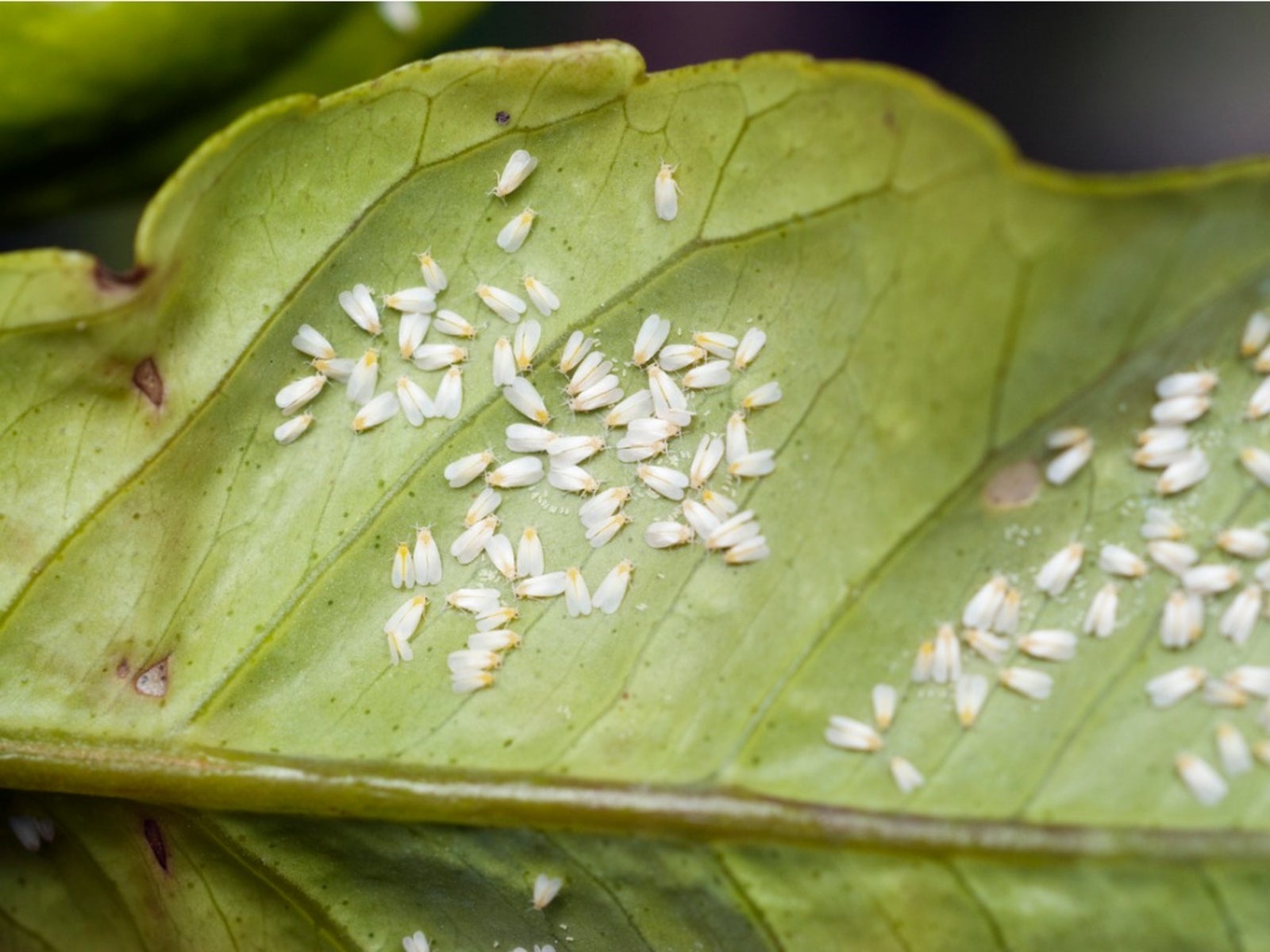Whitefly Indoors: Controlling Whiteflies In The Greenhouse Or On Houseplants


Whiteflies are the bane of nearly all indoor gardeners. There is a wide range of plants fed on by whiteflies; ornamental plants, vegetables, and houseplants are all affected by them. Their secretions can cause foliage to yellow and die. Controlling whiteflies is difficult but not impossible.
Controlling Whiteflies in the Greenhouse and Indoors
Effectively controlling whiteflies begins with familiarity of their life cycles, including various species. They deposit their eggs on the undersides of leaves, often in a circular or crescent-shaped pattern. Once hatched, they begin feeding on the plants until the adults emerge, whereupon they fly to nearby plants, lay eggs, and repeat the cycle all over again. They can produce hundreds of eggs within a month or so. Since whiteflies are small in the early developmental stages, they are oftentimes difficult to detect. However, adults, such as Silver-leaf whiteflies, are generally yellowish with white-colored wings. Their life cycle is completed in about 39 days or less. Adult greenhouse whiteflies are pale green or yellow. Their life cycle can last just 32 days. Banded-wing whiteflies can be distinguished from dark bands on the wings. Depending on temperature, their life cycle completes within 16 to 35 days. Whiteflies develop quickly in warmer conditions. Once inside a warm environment, whiteflies can wreak havoc on plants.
Whitefly Prevention
Prevention is also the key to controlling whiteflies. Close or screen all entry points to prevent whiteflies from entering. Clean and dispose of all weeds and other plant debris. Prior to bringing new plants inside, carefully inspect them for whiteflies beginning at the top and working down, paying special attention to the undersides of leaves where they feed and reproduce. Discard any affected plants. Before repotting plants, allow containers to air out for at least a week. Apply insecticide (like neem oil or insecticidal soap) to remaining plants and those nearby; however, keep in mind that this may only reduce populations, not eliminate them. Insecticides have limited success on whiteflies in the greenhouse or indoors. Both the egg and pupa are tolerant of most insecticides. When using pesticides for controlling whiteflies, read and follow the directions carefully. Be sure to cover all parts of the plant, especially the undersides of leaves. Continue to monitor plants frequently.
Use a Sticky Whitefly Trap
Whether you have whiteflies in the greenhouse, indoors, or in your garden, yellow sticky traps can be used to monitor or reduce whitefly numbers. Whiteflies are attracted to the color and will stick to the adhesive surface. Monitor your whitefly trap frequently and replace as needed. In addition to a whitefly trap, aluminum foil or reflective mulches can also be used to repel whiteflies from ornamental plants. Vigilant removal of infested leaves and hosing down with soapy water is helpful too. Using a small, handheld vacuum cleaner can be effective for removing the adult whitefly as well, especially during morning hours when they are sluggish. Place the vacuum bags in plastic, freezing overnight and disposing in the morning. When it comes to whiteflies, ornamental plants, vegetables, and your houseplants can be protected with a few simple steps.
Sign up for the Gardening Know How newsletter today and receive a free copy of our e-book "How to Grow Delicious Tomatoes".

Nikki Tilley has been gardening for nearly three decades. The former Senior Editor and Archivist of Gardening Know How, Nikki has also authored six gardening books.